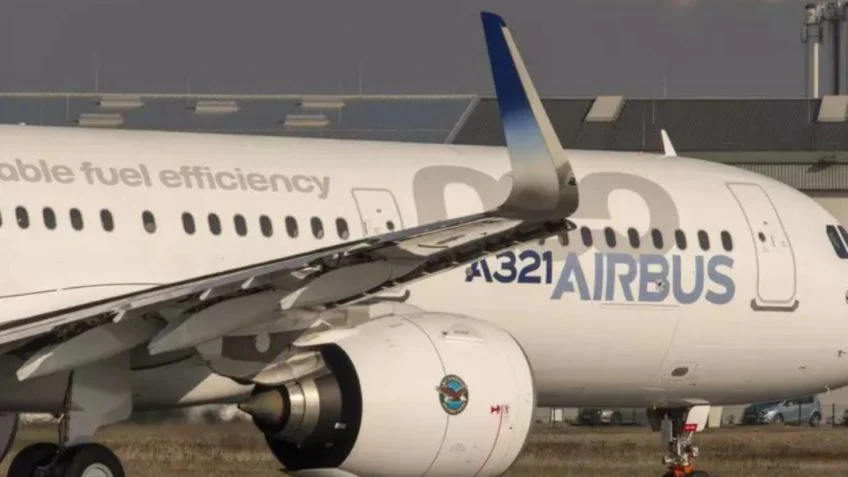In this monumental agreement, the manufacturer has committed to delivering a total of 105 aircraft to Saudi Arabia’s national airline. The magnitude of this contract, valued at approximately $19 billion, marks a significant milestone in the aviation sector for the country. The first deliveries are scheduled for the first quarter of 2026, heralding a new era for Saudi Arabia’s air fleet.
The initiative has not gone unnoticed on the international stage, especially during the Future Aviation Forum, where the scale of this transaction was highlighted. This commitment reinforces Airbus’s position as a dominant force in the global market while posing a challenge to its competitor, Boeing. Airbus’s rise as Saudi Arabia’s preferred aircraft supplier is a testament to the quality and reliability of European products, further strengthening commercial and technological ties between Europe and the Saudi kingdom. This historic milestone represents not only a significant commercial transaction but also a turning point in both Saudi and global aviation landscapes.

Ibrahim Al-Omar, Director General of the Saudia Group, a state-owned entity overseeing both Saudia Airlines and the low-cost carrier Flyadeal, announced on Monday (20th) that the first planes resulting from this monumental order would be delivered in the first quarter of 2026.
In a statement delivered during the Future Aviation Forum in Riyadh, Al-Omar declared, “Saudia Group is honored to unveil today the largest agreement in the history of Saudi aviation,” referring to the contract signed with Airbus.
Currently, Saudia Group’s fleet consists of 93 Airbus aircraft and 51 Boeing aircraft, according to information available on its official website. This recent agreement further expands the European manufacturer’s dominance, which already had an additional order of 39 aircraft pending delivery, as confirmed by an official Airbus statement.
Al-Omar did not clarify whether the quantity of aircraft ordered or the total deal value established this as the largest aviation agreement in Saudi Arabia’s history.
However, in a press release, the organizers of the Future Aviation Forum confirmed that the new order totaled $19 billion. This substantial figure reflects the scale and significant impact of this historic agreement on the aviation sector and the Saudi economy as a whole.
In an additional statement, Al-Omar emphasized that the new order would play a crucial role in achieving Saudi Arabia’s Vision 2030, an ambitious program aimed at sustainability and economic diversification, reducing the country’s reliance on oil. A central aspect of this program is transforming the kingdom into a leading tourist destination.
“We are committed to achieving ambitious operational goals to meet growing demand,” Al-Omar stated. “We are significantly expanding flight capacity and seating availability across our more than 100 existing destinations spanning four continents, with even more ambitious expansion plans ahead.”
According to the National Tourism Strategy, the country aims to attract 150 million tourists annually by 2030. This push in the tourism sector not only promises to strengthen Saudi Arabia’s economy but also to open new business opportunities and international collaborations, aligning with the kingdom’s long-term economic and social development goals.
The news of the Saudi deal comes at a timely moment for Airbus, which has been consolidating its position as Boeing’s primary competitor. While Airbus celebrates this major achievement in Saudi Arabia, its American counterpart faces unprecedented scrutiny due to a series of safety failures, including a January incident involving the mid-air explosion of an aircraft fuselage.
This incident triggered a series of investigations into Boeing’s practices, resulting in changes in executive leadership and promises of recovery by the company. However, Boeing continues to face ongoing challenges following the tragic accidents involving its 737 Max aircraft in 2018 and 2019, which led to the grounding of its best-selling plane for 20 months.
These events have subjected Boeing to rigorous scrutiny, while Airbus continues to solidify its reputation as a reliable and safe alternative in the global aviation market. Airbus’s success in Saudi Arabia further underscores the pressure on Boeing to address its internal issues and regain the trust of customers and regulators.
In addition to previously encountered challenges, Boeing was severely impacted by the global pandemic, which virtually paralyzed travel for months and caused significant damage to most airlines that are Boeing’s customers.
Since the grounding of the 737 Max in 2019, the company has reported adjusted losses amounting to approximately $32 billion. Moreover, since the beginning of this year, the company’s stock value has dropped by nearly 28%.
These figures reflect not only the structural challenges faced by Boeing but also the adverse impacts of the global health crisis on the aviation sector. While the company continues to work on resolving its internal issues and rebuilding its reputation, it faces a tough road toward financial recovery and restoring investor and customer confidence.
Despite maintaining an impressive order book with over 5,600 commercial jets valued at $529 billion, Boeing struggles to translate these numbers into profit due to its inability to manufacture planes quickly enough each year while simultaneously addressing quality concerns.
Meanwhile, Airbus boasts an even more robust order book, with nearly 8,600 aircraft registered by the end of 2023. Additionally, the company reported a considerable profit of €3.8 billion (equivalent to $4.1 billion) for the year, highlighting its ability to generate revenue and maintain efficient production despite challenges in the global aviation market.
This disparity in financial results between the two aviation giants reflects the differing trajectories and strategies adopted by each as they compete in a highly dynamic and demanding environment.
As both companies strive to recover from past crises and face new obstacles, such as the impacts of the pandemic and the need to meet growing demands for more efficient and sustainable aircraft, the competition in the global aviation market remains fierce. While Boeing works to overcome its challenges and regain customer and investor confidence, Airbus continues to solidify its position as a market leader, driving innovation and delivering solutions that shape the future of aviation.

